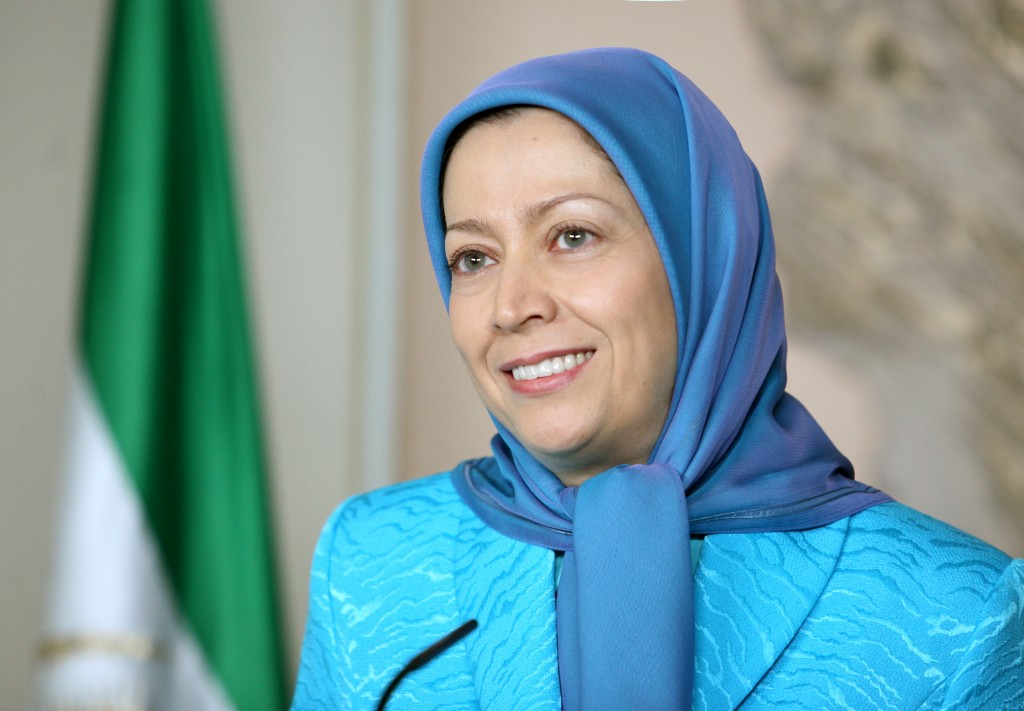Mullahs ruling Iran have nothing to do with Islam

Maryam Rajavi‘s Message to the British Parliament in a conference on fundamentalism as a serious threat to world peace
Distinguished members,
Ladies and Gentlemen,
Let me begin by thanking the distinguished members of Parliament for supporting the Iranian Resistance in its efforts to bring freedom and democracy to Iran. Today, you are discussing an issue that the Iranian Resistance has been dealing with for the past 25 years.
Islamic fundamentalism and terrorism are the main threat to world peace and security. This puts a big question before the international community: What is the solution to this threat? What can be done to prevent another disaster like the SEVEN July bombing, which shook London? Is the brutal wave of terrorism from Iraq to New York and from Madrid to London inevitable? If not, why are we faced with the present situation?
Islamic fundamentalists have ruled my country for 26 years now. But I want to say today that the fundamentalists and especially the mullahs ruling Iran have nothing to do with Islam and its true teachings. Islam advocates compassion and emancipation. The mullahs are the prime enemies of Islam. What we see today is not a religious war. It is not a clash of civilizations either. It is a backward, warlike ideology that opposes freedom and human values and misuses Islam to achieve its political ends.
The disaster on SEVENTH of July in London was not an isolated event. It was the result of the spread of Islamic fundamentalism. It was similar to the NINE-ELEVEN tragedy, and the bombings in Bali, Madrid, Buenos Aires and Beirut. Islamic fundamentalism as the driving force of terrorism was not born on September 11, 2001 (two thousand one), but in 1979 (Nineteen Seventy Nine) when mullahs took power in Iran.
The Iranian Resistance declared 12 years ago that after the demise of the former Soviet Union Islamic fundamentalism became the new global threat. This was based on a deep understanding of the nature of this phenomenon, of the situation in the region and of the role of Iran under the mullahs as the epicentre of Islamic fundamentalism.
Unfortunately, the West did not understand the danger of Islamic fundamentalism. It ignored this reality and followed a policy of appeasement, which resulted in imposing restrictions on the Iranian Resistance in response to the demands of the Iranian regime. This policy led to the spread of Islamic fundamentalism.
Without relying on a ruling power, Islamic fundamentalism would not grow. The Iranian regime is the driving force for this phenomenon across the world.
Last week, Khamenei challenged the international community. He said: “A human being, a party, or a group cannot confront the challenges of today’s world. The only entity that can challenge the ugly world order is a common international entity that is forming with the Islamic Republic of Iran at its core… We have strategic depth in other Muslim nations. We are able to challenge the condensed economic power that the evil entities have created for themselves. They must be challenged.”
Prime Minister Tony Blair has in recent weeks said that bombs used to kill British soldiers in southern Iraq had come from Iran. A British official said, “Iran’s motives certainly don’t seem that clean. If Iran wants to tie down the coalition in Iraq, then that is consistent with supplying opposing groups.” He said there is evidence that the Iranian help is not just limited to the Shia group.
This is just the tip of the iceberg. The regime’s presence and influence in Iraq go much further. Mullahs’ advancement in Iraq and their obtaining of nuclear bomb will certainly change the regional balance of power and geopolitics. This would create a major international crisis. By consolidating his regime, stepping up domestic repression and increasing support for terrorism, Khamenei has shown his resolve for a showdown with the West. European response, including Britain’s is not enough. The British press are correctly questioning the policy towards Iran over the past few years.
On behalf of the Iranian Resistance that has fought against the fundamentalist regime in Iran for over two decades, I say before you, the elected representatives of British people, that any delay in dealing with the fundamentalists ruling Iran will have serious consequences for global peace. It will certainly have more victims. Mullahs’ nuclear file must be referred to the UN Security Council immediately. Their meddling in Iraq must be stopped. And the world should condemn the mullahs for suppression inside Iran, especially the growing number of executions.
A decisive policy towards Iran coupled with democratic change in Iran is the lasting solution to Islamic fundamentalism. Unfortunately, the policy of appeasement and the blacklisting of the main opposition organisation are the main barrier to democratic change in Iran. The negative consequences of the terror tag on the Mojahedin goes far beyond imposing restrictions on one organisation and its members. It sends a message to the Iranian people that the international community is opposed to change in Iran and that it accepts the regime. All Iranians, except for supporters of the Tehran regime, share the view that the terror tag on the Mojahedin must be removed.
This terror tag has denied the international community the chance to have an anti fundamentalist force on its side. A force that has led an all-out cultural and political challenge to Islamic fundamentalism. Moreover, Mojahedin democratic and tolerant vision of Islam, at the heart of the Iranian Resistance, is the antidote to Islamic fundamentalism.
The world does not have much time. Change in Iran is a necessity. Removing the People’s Mojahedin from terrorist list is the first step to empower the Iranian People to bring about change.
Thank you
- Tags: Iran, Maryam Rajavi, MEK, mullahs' regime, NCRI

